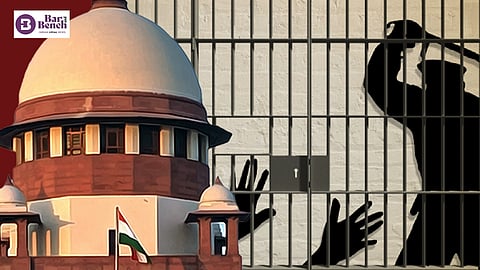The Supreme Court on Friday once again hauled up the Madhya Pradesh government and the Central Bureau of Investigation (CBI) for failing to arrest two police officers accused in the custodial death of a 25-year-old tribal youth [Hansura Bai & Another v. State of Madhya Pradesh & Ors].

